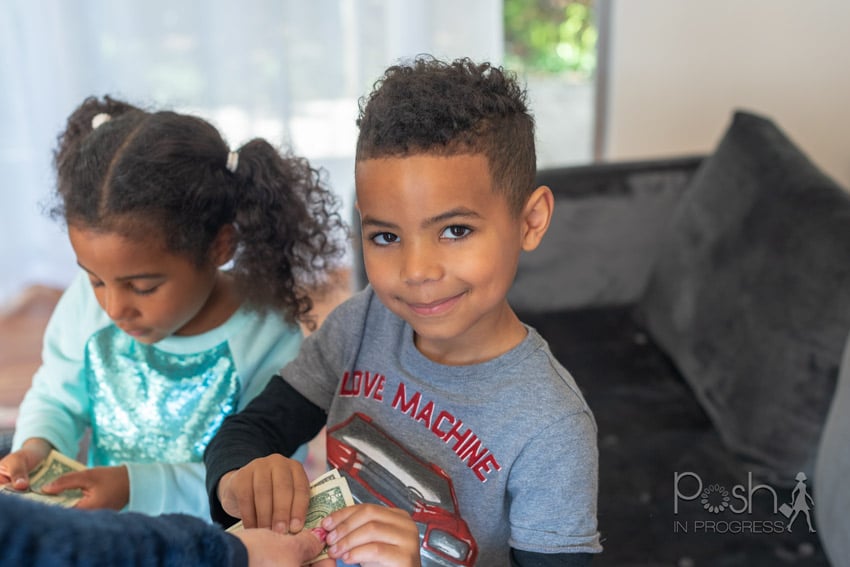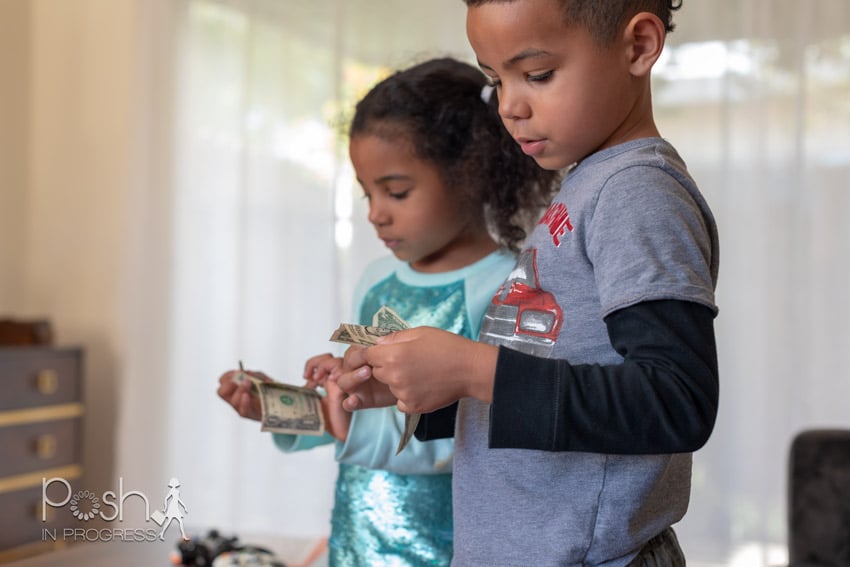Should Little Kids Get an Allowance?

Should You Make Little Kids Do Chores?
Now that our kids are old enough to do chores, and are starting to understand the value of money, we’ve decided that some chores will earn them an allowance. For us, chores have at least a couple of benefits. Most important to me, chores teach work ethic and responsibility. They also show our kids that life isn’t always about fun and play. Life is about work, doing things that we don’t love. Although I want my kids to have a carefree childhood, I also want them to understand that life does require discipline, a strong work ethic, and doing things we don’t love to do all the time to be successful.
This article actually outlines 7 ways that chores benefit kids. I couldn’t write it better myself. Probably most important is that chores create more successful adults. We all want our kids to be successful, right? So instead of seeing chores as a punishment, we should see them as a powerful tool to instill work ethic and values.
 Should Little Kids Get an Allowance For Chores?
Should Little Kids Get an Allowance For Chores?
Once we decided that it made sense for our kids to participate in doing chores, we talked about whether our kids should earn an allowance or not. As kids, we both received allowances. Mine were attached to chores when I was younger, but as a teenage, they no longer were. My allowance was much more tied to ‘being a good kid’. My parents didn’t have to question where I was or whether I got good grades, because I did. They instilled that work ethic in me early on, so I just did what I was supposed to do. I can’t say for sure if chores are part of the reason, but I am sure they didn’t hurt.
Another thing my parents instilled in me from an early age was the need to save. When I got my first job at 16, and throughout high school, every check I earned, half of the money was put into a savings account. The other half, I was able to spend freely. Although, at the time, this felt like such a punishment, I’ve learned they were simply trying to instill the value of saving for the future.
How to Start Teaching Financial Literacy Too
After much though, we’ve decided to give our kids $5 a week for helping with chores around the house. Although they aren’t quite old enough to do most of the chores without constant supervision, we have gotten them involved in several ways. They help with dusting, sweeping, and mopping. They do complain sometimes, but other times, they really enjoy being involved.
Once their weekly chores are complete, they each receive $2.50 – the other half is added to their savings accounts. We told them that at the end of the year, they could cash in their savings for one big prize. For example, a trip to Disney, or a toy they’ve been eyeing. This tactic teaches them the value of saving and also the value of delayed gratification – at least, I hope it does. Earning an allowance is an easy entry point to teaching your kids about financial literacy. If you’re looking for more tips, I wrote an article awhile back with 7 tips to teach young kids about finances.
The one thing our kids are required to do that does NOT earn them an allowance is keeping their room clean. think it is still a little confusing to them. But, we are trying to instill the value of taking good care of your things and taking pride in your own home. Although we decided not to attach room cleaning to their list of chores, it is still part of their weekly responsibilities. Thus far, they have shown a lot of pride after they clean their room. They always rush downstairs so we can come and see their work. Giving them positive reinforcement after they clean their rooms has been really helpful, thus far.
Overall, we’re still working through this allowance thing. However, I do think the potential benefits outweigh any potential negatives. Do you have any thoughts on giving young children an allowance? I’d love to hear your experiences – good or bad!

 Should Little Kids Get an Allowance For Chores?
Should Little Kids Get an Allowance For Chores?
One Comment